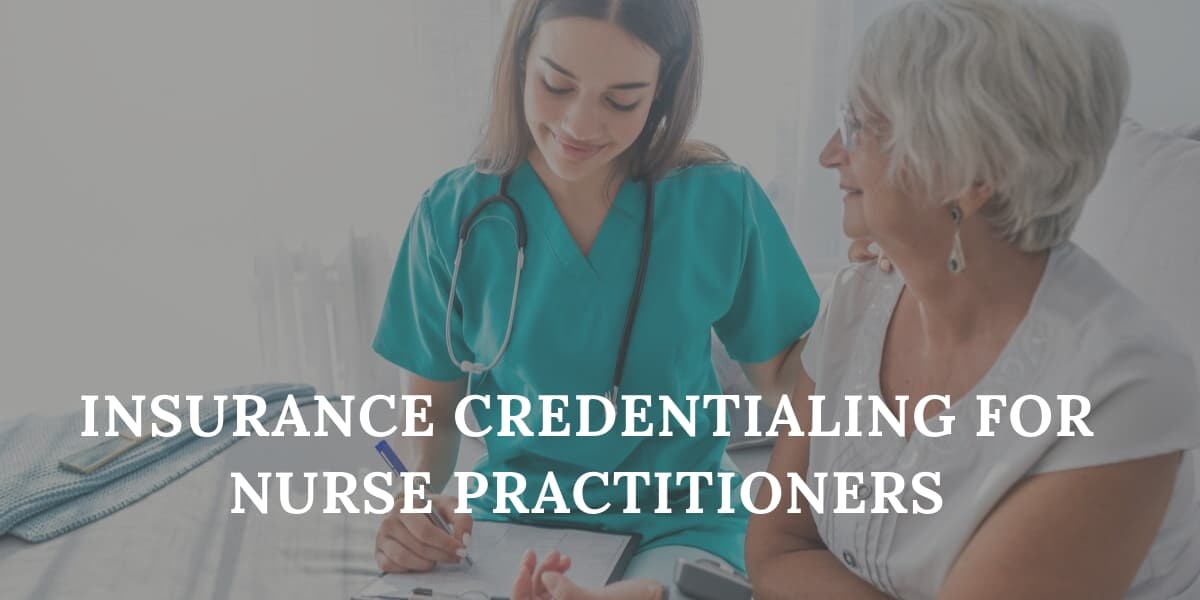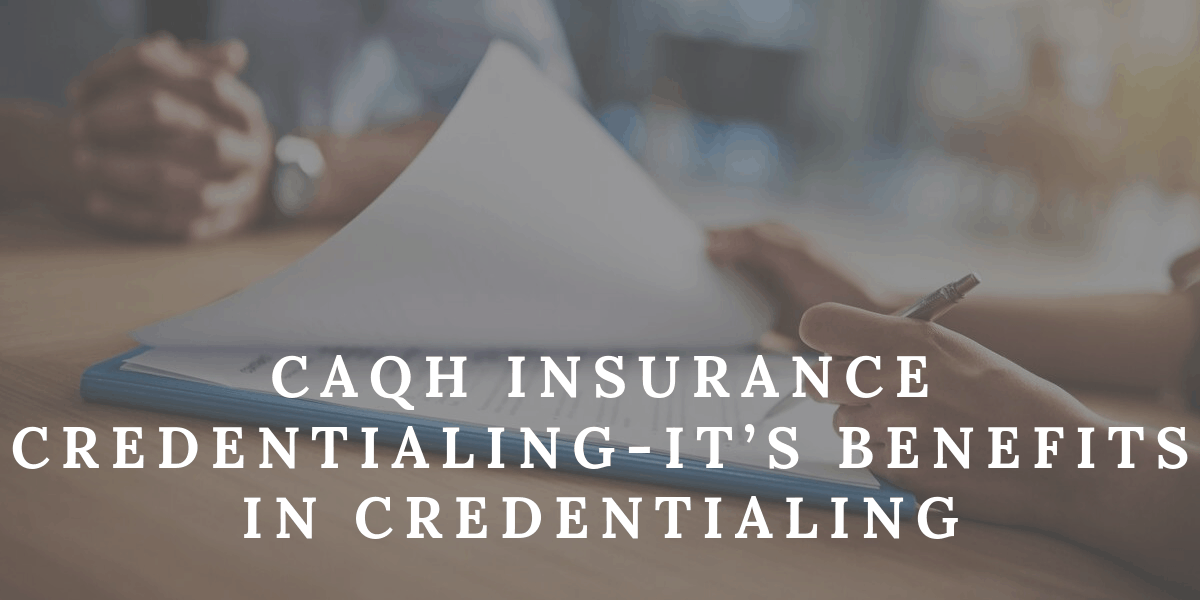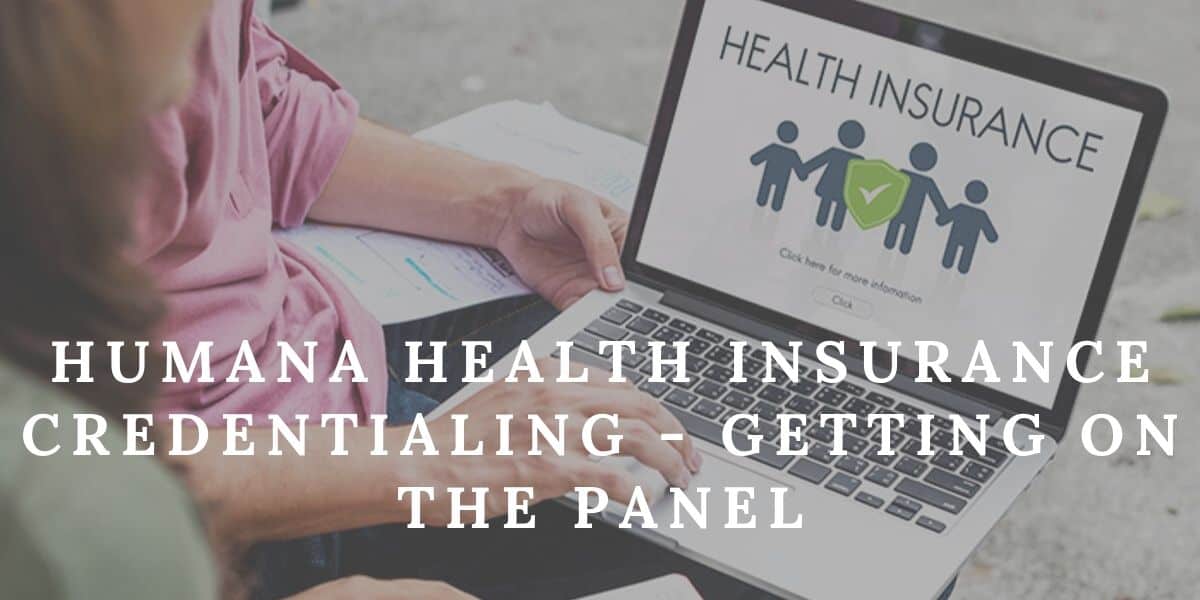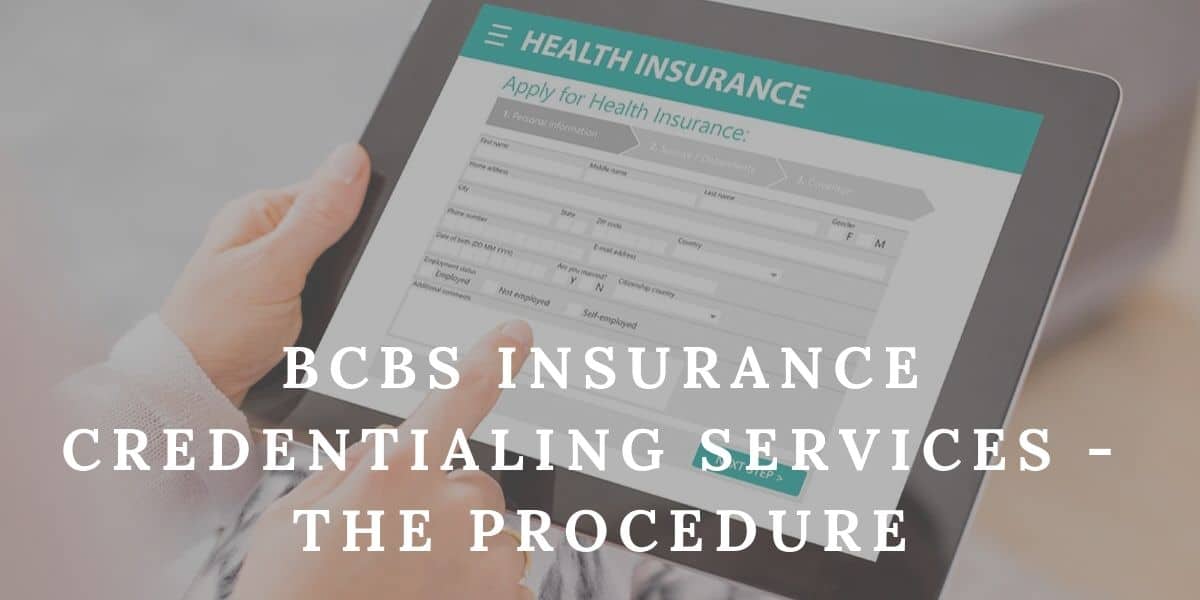
Challenges in Nurse Practitioner Credentialing
Insurance credentialing for nurse practitioners is as vital as for other practitioners in the field. However, the dynamics of credentialing is quite different for nurse practitioners than others. Its challenges are different and can cause a lot of distress for the uninformed.
In this article, we will look at some of the challenges faced by nurse practitioners that are exclusive to their faction. It is essential to know the hurdles you face, so when the time comes, you can jump over them with ease.
Challenges with Insurance Credentialing For Nurse Practitioners
Restrictions with License
Nurse practitioners throughout America have to go through various forms of restrictions when it comes to licensure. It varies from state to state. Some states allow Full Practice license to nurse practitioners. This means that they are allowed to evaluate, diagnose, interpret diagnostic tests, initiate or manage treatments and prescribe medications in accordance with the exclusive licensure authority.
Read More: Importance of Nurse Practioner Credentialing for Nurses and Healthcare Organizations
In reduced practice states nurse practitioners require a regulated collaborative agreement with a physician. The collaborative agreement is mandatory if NP’s wish to offer patient care in these states. Without the above formalities, there is no chance for a nurse practitioner to ever get credentialed to undertake practice. It is highly recommended for nurse practitioners in these states to have the necessary collaborative agreements in place when the need arises.
And finally, we have “Restricted.” This kind of practice states requires thorough supervision, delegation, or team management by an outside health discipline for nurse practitioners to practice health care.
Admitting Privileges
Many insurance plans require practitioners to have to admit privileges at an in-network facility. If a practitioner does not have the required admitting privileges then he/she need to prove an “admitting relationship” with another provider.
The requirement can be frustrating for many practitioners who work in a setting that does not have situations that require admissions requirement. As we mentioned, the “admitting relationship” should be in the form of a letter, on the letterhead of the concerned physician who states that the physician in question will handle all inpatient admissions for the patients when necessary.
There is no way you can skip this requirement. Nurse practitioners must keep this requirement ready when undertaking the credentialing process.
Credentialing File
It is highly recommended for nurse practitioners to keeps their files ready. All the credentialing documents and copies that will be required need to filed and available. Documents will always be needed for assessment, whether it is for credentialing or re-credentialing.
Here is a list of documents that you need for credentialing
- State License
- Current CV
- Professional liability insurance
- Current Drivers license
- Collaborative Agreement
- DEA/CSR
- Board Certificate
- Admitting Arrangement Letter
- Prescribing Arrangement letter
- Copy of diploma from the highest level of education.
Get Ahead of the Curve
Credentialing is not a piece of cake and can go on for a better period of a year. If you are starting a new practice or hiring nurse practitioners for your practice, then be ready with all the necessary documents and copies needed. Prepare a credentialing packet for your nurse’s so that they can arrange for the required documents without any confusion.
Learn More

Insurance Credentialing and Contracting-Their Merits
When it comes to insurance credentialing and Contracting, you have to understand that they are two sides of the same coin. Both need to seamlessly go hand in hand for an individual or group practice to get on insurance panels.
In this article, we’ll try to simplify the concepts of both Insurance Contracting and credentialing and find out how the two concepts intertwine with each other.
Insurance Credentialing
Credentialing is a process providers need to mandatorily undertake if they seek to serve clients covered by the federal insurance program. The applying provider needs first to verify his/her professional records to get credentialed.
This includes NPI, CAQH, professional licenses, diplomas, certifications, attestations, references, etc. All of these documents are essential to verify the accuracy and reputation of the concerned provider.
The same process applies if the Individual provider is applying for privileges in a group practice such as hospitals and surgery centers. They will be asked to submit a completed application which would be later sent to the credentialing entities for verification.
They will request the provider’s professional documents which may include National Data Bank records, credit card records, and criminal background searches.
They will also indulge in what is called primary source verification, which basically means verifying the source of the provider’s diplomas and educational certificates. There is no way to avoid this as hospitals are mandatorily required to check the above-mentioned documents to protect their patients from bad actors.
The Entire Credentialing process can be summed up as follows:
- Getting Information in Order
- Filling out the CAQH form
- Contacting Provider Relations
- Submit Application
- Reviewing Contract after Approval
As you can see, Insurance credentialing is a lengthy process. It is advised to seek help from third-party service providers like Denmaar to efficiently carry out the overwhelming process. The entire Insurance Credentialing and Contracting process culminates with the approval of the contract by the insurance company.
Contracting
If credentialing was the process of gathering and submitting information, contracting is the process of submitting the information and obtaining credentialing approval. This is where the provider finally obtains participation on an insurance panel. This means he/she can now take in clients that are covered by the health insurance coverage of that particular company. We often see providers enroll in these plans, only never to renew them again.
It is almost as if they forget that their application with a said insurance panel comes with an expiration date. A lot of time may pass by, and insurers may not review your contract, thus failing to reflect on the provider’s reimbursement rates. This spells a recipe for disaster as it can lead to thousands of dollars lost and payments interrupted.
Denmaar’s Insurance Credentialing and Contracting for Providers
Although time-consuming, there is a reason why credentialing requires such a high level of scrutiny. The affordable care act has raised the standards of such scrutiny to reduce fraud and abuse when it comes to Medicare and Medicaid enrollment.
The same applies to the contract. It is essential to be aware of the information contained in the contract of approval. Attention needs to be paid on when the period of credentialing may expire, to apply for re-credentialing quickly.
Denmaar is a mhBilling company that helps providers with both credentialing and re-credentialing. We offer a fully automated system to our clients that keep them updated in real-time with updates regarding their application. At Denmaar we are not just concerned with verifying your forms. We also ensure you are always in touch with your process to ensure your credentialing process is as smooth as possible.
Learn More
Oscar Insurance Credentialing – Getting on Insurance Panel
Let’s understand the process of Oscar Insurance Credentialing
Oscar insurance company is a technology-focused healthcare company that was founded in 2012.
Headquartered in New York City, Oscar provides its services in 9 states across the USA. These 9 states include New York, New Jersey, Ohio, Texas, California, Tennessee, Arizona, Michigan, and Florida.
The company has been popular for using advanced technology to engage with their clients. They use telemedicine; healthcare based technological interfaces, and transparent claims pricing systems.
Oscar began selling insurance the same year the affordable care act exchanges and individual mandates went into effect. In the first year, Oscar managed to secure 16000 members, and it has progressed into even more significant numbers ever since.
As of today, there are at least 25000 members covered under Oscar’s insurance program. They have not only partnered with 3500 nationally ranked doctors, but also work with 20 top health systems in the US.
Hence credentialing with Oscar is crucial if your practice falls under their jurisdiction. This will allow you to tap into a client base that is covered under the Oscar insurance program. So without much further ado, let’s look at the process Oscar Insurance Credentialing for providers.
Oscar Insurance Corporation Provider Credentialing – The Process
1. Pre Application
Before applying, Oscar requires practitioners to submit the necessary information to confirm that the applying practitioner is meeting basic guidelines of insurance credentialing with OSCAR. An Oscar representative is assigned to the practitioner who informs whether the applying party meets all the mandatory guidelines or not.
2. Submit Your Application
Once the practitioner is deemed compliant with Oscar’s guidelines, they send an e-mail containing all the information the provider needs to initiate the process.
If the application information already exists on the CAQH aka Council for Affordable Quality Healthcare, then OSCAR will with the provider’s permission, proceed to access it electronically.
The following information is essential from the provider, depending on :
- Basic Personal Information
- Education and Training Information
- Specialties and Board Certification
- Malpractice Insurance Information
- Work History and References
- Disclosure and Malpractice History
Here are some materials you’ll need:
- CV or Resume
- Malpractice or Insurance Policies
- Drug Enforcement Administration Certificate
- State Licenses
- W9’S
- Various applicable ID numbers
3. Follow Up
Once Oscar Insurance Credentialing receives the application packet, they will start the credentialing process. The entire process will take 45 to 60 days to culminate.
During this time, the provider will receive e-mails regarding:
- Confirmation of Application received
- Request any missing documentation or application information. If any fundamental document or information is found to be absent during the process, Oscar will send a notification, notifying about the closure of that particular application.
- Constant updates about the status of an application, including delays if any.
4. Oscar Approval
If Oscar approves a particular practitioner’s application, the practitioner becomes an in-network provider with OSCAR. Oscar health Insurance Credentialing will updates the provider information in their database within the next 10 business days.
Being an Oscar in-network provider can be a very long and tedious process. The entire process requires at least 90 – 120 days to be completed and approved. There is a lot of paperwork, which makes the whole process quite frustrating for medical practitioners who want to accept clients with medical insurance. That is where the professional assistance of Denmaar comes into play.
With the help of our credentialing experts, we can walk you through the entire process by accomplishing tasks without any complications and hassle so that you can work on other core areas of your medical practice.
Learn More
Insurance Credentialing Specialists – Its Importance
You are probably thinking of whether to hire Insurance Credentialing Specialists or undertake the entire process solo if you are an individual or group practice. If you are even remotely aware of the workings of a typical credentialing process, then you know that going solo is probably not a good idea.
The credentialing process is long, and time-consuming, which can interfere with the efficiency of your practice. As medical professionals, that is something you can’t allow to happen. Hence, hiring credentialing specialists for health insurance payments becomes a wise decision.
What is an Insurance Credentialing Specialist?
The primary role of an Insurance credentialing specialist is to work with group, private or other such medical practices. Hence, helping ensure their medical professionals are complying with government credentialing standards. Insurance Credentialing specialists take it upon themselves to verify the legitimacy of medical professionals with regards to their background, work experience, and education.
An Insurance credentialing expert will have an intricately organized database of the training, education, licensing, and experience information. They ensure that the data thus collected from a healthcare professional is complying with staff policies, government laws, and regulations.
Importance of Insurance Credentialing Specialists
Hiring credentialing experts like Denmaar, helps healthcare organizations in a variety of departments including, of course, the process of credentialing itself. We just discussed the role of insurance credentialing specialists with regard to credentialing. Now let’s dive deep to know why they are absolutely essential players to aid providers in the process of credentialing.
Hiring Qualified Healthcare Professionals
Credentialing specialists can help hospitals and medical organizations hire only those professionals that are qualified and meet all of the credentialing standards set by the government. Specialists extensively verify documents to check whether they are compliant with rules and regulations. This helps hospitals and health care enterprises maintain a staff of competent professionals.
Getting In-Network with Insurance Companies
Getting on insurance panels is what credentialing is all about for many providers. They want to serve clients who are covered under a particular or federal insurance program. Without the necessary credentialing requirements, that is not possible, and the practice loses valuable clients. Third-party credentialing specialists like Denmaar, walk you through the entire process without any hassle so that medical practitioners can concentrate on their practice.
Denmaar also helps in speeding up the process with Medicare, Medicaid, and other commercial insurers, allowing you to now see patients faster and get paid for them sooner.
Credentials Management
The entire application process, diligence, and constant follow-ups can be overwhelming for a provider. However, credentialing specialist relieves providers of such a burden. They keep providers up to date on their application and expedite the process that would usually take months to complete.
Most credentialing specialists now use robust softwar9e’s to manage the credentialing process for their clients. We at Denmaar use a fully automated system that inputs all the relevant information from the provider. The system also provides automated updates on upcoming expiration dates to ensure credentialing is done on time, and providers can continue to accept patients.
Why We Need Credentialing Specialists Today
With a significant portion of the nation’s population already covered under a federal or commercial insurance program, credentialing has become vital. Without it, providers will continue to lose clients. On the other hand, we realize that credentialing is a complex process.
Hence Denmaar has a team of credentialing experts ready to deliver on our promise of efficient credentialing services. Our specialists meet the qualifications that any insurance credentialing specialist job description needs.
With our experts and an advanced system, we promise an efficient credentialing process, unlike any other in the market.
Learn More
CAQH Insurance Credentialing-It’s Benefits in Credentialing
Let’s understand what CAQH insurance credentialing is and how to complete the CAQH profile
efficiently.
CAQH, aka Council for affordable quality healthcare, is essentially an online database that contains vital provider information. It is through the CAQH portal that providers grant insurance companies access to their documents, thus making the entire acquisition process quite efficient.
As of 2019, Almost 90 % of all National Health Insurance Companies use CAQH as their primary database for provider information. This includes over 900 health plans, hospitals, and healthcare organizations.
Benefits if Insurance Credentialing with CAQH
The CAQH was founded with a simple objective in mind, to simplify the data gathering process and allow physicians and other healthcare providers with a single source to submit their information. Without CAQH, a typical physician would have to apply separately to multiple insurance companies, each with their own time-consuming process.
However, with CAQH insurance credentialing, this process is simplified, and the time taken for the processing of applications is significantly reduced.
Another benefit of CAQH insurance credentialing is the security the portal offers its users. The CAQH database resides in a secure network operations network. All information here flows to and fro through redundant firewalls. Strict measures like secure internet access, use of passwords, electronic signatures, SSL certificates ensure that the data is only accessed by authentic users.
No cost is incurred by the providers to use the database, whereas health plans and other healthcare providers pay a certain fee per provider to access information.
Completing The Insurance Credentialing CAQH profile.
Completing the CAQH profile is a crucial step in achieving the credentialing process.
There are three steps to get acquainted with the CAQH system. They are as follows.
1) Getting a CAQH Number
There is a higher chance that the insurance company a provider wants to get into a panel that uses CAQH as its provider information database. Check the list of participating organizations on the Council for affordable quality healthcare website to make sure. If your insurance company does use CAQH, then you will receive a CAQH ID number via mail.
Alternatively, you can also self-register with the CAQH portal to get the CAQH number before applying for credentialing.
The number is significant and should not be lost as it will come in handy while re-attesting the information later down the line.
2) Keeping Information Ready
It is recommended to have all the information ready to complete the CAQH profile. The following are the information required:
- Basic Personal Information
- Education and Training Information
- Specialties and Board Certification
- Malpractice Insurance Information
- Work History and References
- Disclosure and Malpractice History
Here are some materials you’ll need:
- CV or Resume
- Malpractice or Insurance Policies
- Drug Enforcement Administration Certificate
- State Licenses
- W9’S
- Various applicable ID numbers
The information on your CV/ Bio Data needs to be perfect and devoid of any errors. It is mandatory to use dates in the CV complying with the following format – MM/YYYY. There should be no gaps in employment. If your date isn’t formatted correctly, or the gaps in your employment are not filled, then your application will be rejected.
3) Completing the Profile
Once we have all the information required to complete the CAQH profile, it’s time to complete it. It is recommended to undertake this process online. The paper-laden method is simply too chaotic to be conducted with efficiency.
It is not mandatory to finish the CAQH profile in one sitting. The application can be saved to be completed on a later date. Once the information is provided, the website will ask you to review the application and attest to its validity.
Once completed, you will have to choose who gets to access it. CAQH portal gives you two options.
- Allow any insurance company that indicates they would like to allow you on their panel to have access to it.
- Manually choose which panels you would like to have access to your information on CAQH portal.
Although the process is complete, you mustn’t lose your approved information. You will be required to re-attest to the information quarterly.
CAQH Insurance Credentialing With Denmaar
To complete the CAQH profile efficiently, you need a third-party provider you can trust. Denmaar with years of experience to its credit can help you complete the CAQH profile to make your credentialing experience as convenient and hassle-free as possible.
Learn More
Credentialing Doctors to Your Group Practice
You have just started a new practice, and you now want to learn about the process of Credentialing Doctors to your group practice. There are many questions that storm the mind before the inception of such a process. Where to begin? Whom to approach? What insurance panels to choose, or how to panel with an insurance company?
The question can be baffling and complex, but not as complicated as the process itself. Those who have undertaken the process know-how stretched out and overwhelmingly complex it actually is. With lots of paperwork, constant follow-ups, and increased risk of loss of documents, it is one hell of an undertaking; many practices wish they would never have to go through. Thankfully, there are third-party Insurance credentialing service providers that can help you immensely with the entire dreadful process by avoiding all of its hassles.
Let’s look at some of the main questions that practices have with regards to insurance credentialing for physicians.
How to Know Which Insurance Companies to Panel With?
You start by asking your colleagues in the same field, or the providers in your own locality about which insurance they are using. Find out all the pros and cons of the insurance companies from them like their rates, promptness of payment, etc. Know which physician credentialing insurance companies are popular in your locality, and which have the most clients’ coverage.
Should You Set Up a Group Contract with Insurance Company?
Some insurance companies allow group contracts, and some don’t. It varies from one company to the other. What is more important to consider is that your clinicians get credentialed using the practices NPI2 and tax ID, and not their own social security numbers. You don’t want to chase all of your clinicians for the checks that were supposed to come to you. Let your clinicians fill out their w9 form with your name, TIN, and address, so insurers know to send the checks to you and not them.
Another benefit of applying as a group is that it is easier to negotiate rates this way than it is to negotiate to be a solo provider. Also, the process of adding clinicians is easier and less time-consuming.
What to do once clinicians have completed their application to participate?
Documents get lost all the time during the process of credentialing. In such a scenario, it is important to follow up with the provider relations departments regarding the receiving of a document. Follow up every week, but do not do it constantly so as not to annoy the already irate officials.
Like we said before, the entire credentialing Doctors process is not without its hassle. We would suggest putting together a Credentialing packet for all your clients with all the credentialing Doctors related information they will need. This will make the entire process easier as every entering therapist will have the knowledge needed for their individual credentialing requirements.
With the help of Denmaar’s credentialing experts,we can walk you through the entire process without any complications and hassle so that you can work on other core areas of your medical practice. You deserve the best physician insurance credentialing services, and we know how to deliver it.
Learn More
Humana Behavioral Health Credentialing Services
Humana Provider Credentialing & Contracting Services
Join Humana as an in-network healthcare provider and expand your services to a wider base of patients with our Humana Insurance provider credentialing services.
Let’s discuss the Humana Health Insurance Credentialing Process.
Humana Inc is a health insurance company based in Kentucky, Louisiana. Over the years, it is responsible for amassing over 13 million Americans into its healthcare program. With revenue of $41.3 billion, Humana was ranked 56 on the Fortune 500 list.
Now, Humana credentials and re-credentials all licensed independent practitioners including physicians, facilities, and non-physicians who fall within its scope and authority.
The following elements are crucial for a practitioner to be credentialed by Humana:
- Applying provider is in good standing with state and federal regulatory bodies.
- Applying Provider has been reviewed and approved by an accredited body.
- Every three years is still in good standing with state and federal regulatory bodies and is reviewed and approved by an accredited body.
- Liability insurance coverage is maintained.
- Copy of facilities State License.
- CLIA certificates are current.
- Completion of a signed and dated application.
As mentioned, Humana has at least 13 million Americans covered under its insurance program. Hence, it makes sense for Humana health insurance provider credentialing to get in-network with humans to tap into what could potentially be a lucrative market. The process, however, is overwhelmingly tedious with too many moving parts. Thankfully, DENmaar’s team of experts will help assist you throughout the Humana credentialing process.
Check out Credentialing Process Checklist.
The Process to Apply for Humana Health Insurance Credentialing
The provider credentialing process for Humana is as follows:
1. Pre Application
Before applying, Humana physician Credentialing requires practitioners to handover some necessary information to confirm that the applying practitioner is meeting the basic guidelines of Insurance Credentialing with Humana. A Humana representative is assigned to the practitioner who informs whether the applying party meets all the mandatory guidelines or not.
2. Submit Your Application
Once the practitioner is deemed compliant with Humana’s Health Insurance Credentialing guidelines, they send an e-mail with an application packet containing all the information needed to get started.
If the application information already exists on the CAQH aka Council for Affordable Quality Healthcare exists on the CAQH or One Health-port website, then Humana will with the applying parties’ permission, proceed to access it electronically.
The Following application information is required from the applying party, depending on:
- • Active and Unrestricted License in the State
- • Drug Enforcement Agency Certificate (If Applicable)
- • Good Standing With Medicare and Medicaid, Medicaid Number
- • Humana participation in-hospital clinical privileges
- • letter of interest for insurance credentialing for Humana
- • Board Certification Status
- • Professional and Educational Training
- • 5 Year of Work History
- • Malpractice Claims History
- • Adequate Malpractice Insurance
- • Prior Sanctioning Activities
3. Follow Up
Once Humana receives the application packet, they will start the credentialing process. The entire process will take 45 to 60 days to complete.
During this time, the applying party will receive e-mails regarding:
Confirmation of Application received
Request any missing documentation or application information. If any fundamental document or information is found to be absent during the process, Humana will send a notification, notifying about the closure of that particular application.
Constant updates about the status of an application, including delays if any.
4. Humana Approval
If Humana approves a particular practitioner’s application, the practitioner becomes an in-network provider with Humana. Humana will update the provider information in their database within the next 10 business days.
Being a Humana in-network provider although tedious, is essential for providers to get clients who are covered under the Humana Insurance program. We at Denmaar, understand that medical practices would rather focus their energies on treating their patients rather than focus on the tedious task of credentialing. Hence, we offer a robust end to end credentialing solution that assists you throughout the process.
DENmaar’s Insurance Credentialing Services and its Benefits
The following are the major benefits you can enjoy by availing of our Humana Provider credentialing services.
1. Access to Credentialing Specialists
We are home to highly skilled credentialing specialists who are with you from start to finish to make sure your credentialing process with Humana goes smoothly, without any hiccups.
2. Expiring Document Alerts
We arm you with personalized credentialing software that promptly alerts you of expiring documents so you can take the necessary steps before the set deadline.
3. Up-To-Date CAQH
CAQH is an integral part of the healthcare credentialing process. At DENmaar, we help you create, update, and keep your CAQH relevant.
4. Automated PAR Status Updates
Be up-to-speed about your application’s status at each and every step of the Humana credentialing process with DENmaar’s special RCM portal.
Who We Help with Insurance Credentialing & Enrollment?
We simplify the insurance credentialing & contracting process for the following entities.
- • Physicians
- • Physician Assistants
- • Nurse Practitioners
- • Urgent Care Facilities
- • Audiologists
- • Behavioral Health Providers
- • Physical, Occupational, and Speech Therapists
Join Humana as an In-Network Provider with DENmaar
Humana contracting and credentialing is no child’s play. At DENmaar, however, we are home to Humana credentialing specialists who possess the experience, skills, and resources needed to help you get credentialed with Humana in a quick and efficient manner. We make sure all of your documentation is taken care of to make sure your submitted application has a chance of being rejected. If by any chance your application is denied, you rest assured that our specialists will do the necessary and resubmit the application in time to boost your chances of getting credentialed with Humana.
Learn More
Addiction Treatment Credentialing – Benefits
Addiction Treatment Credentialing have become absolutely necessary for medical practices who have taken it upon themselves to combat the crisis of substance abuse disorder.
The Addiction fighting workforce today is represented by at least 100,000 counselors, healthcare professionals, and educators. These professionals help in the treatment, recovery, and support of individuals suffering from substance issue problems.
However, rendering of such treatment and recovery process becomes impossible for medical professionals if they fail to get credentialed with government or private medical agencies like Medicare, Medicaid, Aetna, etc. Private and group practices cannot offer addiction treatment or collect payments from patients who are covered by the federal insurance program.
Addiction Treatment Credentialing – What is it?
Credentialing is the process of assessing the legitimacy and background of a medical practitioner and establishing the qualifications they require to become licensed professionals. The concept is simple and is designed to protect ailing individuals from being exploited by fraudulent practices.
With the help of Addiction treatment Insurance credentialing, healthcare professionals have the necessary license requirements to legally serve new patients and get paid by these patients for the services they perform.
Why Get Addiction Treatment Insurance Credentialing
Rising Substance Abuse Disorder (Crisis)
The crisis of addiction our nation faces today is the stuff of nightmare. In 2017 alone, 70,000 Americans died of a drug overdose. This includes prescription opioids, heroin, and illicitly manufactured fentanyl abuse. The death rate has gone up from 6.2 per 100000 people in 2000 to 14.2 per 100000 people in recent years.
The numbers signal the imminent demand for Medical practitioners who have the skills and qualifications needed to provide medical attention to a population of people suffering from Substance Abuse Disorder.
Consistent Work
Probably one of its vital benefits is how it can get a medical practice onto an insurance panel, or better yet turn them into an in-network provider. This allows for dealing with billing codes, rates, and other reports and deliverables consistently. The overall uniformity this system offers can help healthcare enterprises make essential decisions more effectively and efficiently.
Better Customer Support
As many insurance companies, today have their own team of autism specialists, in-network providers such as licensed medical practitioners have the chance to socialize and build valuable relationships within the organization that can help with faster claim resolution, or helps resolve queries regarding claim issues. This allows for pre-authorization, re-authorization, and claims information online. All of these factors ultimately enable clinics to provide better customer support to their customers.
Electronic Claims
Getting credentialed allows medical practices to send bills to insurance providers electronically. Electronic claims are a faster, more convenient way of receiving payments quickly than traditional paperwork. Unfortunately, this benefit cannot be enjoyed by medical practices that don’t possess the necessary credential requirements.
The Process of Getting Addiction Treatment Credentialing.
The Addiction Treatment Credentialing process is a long and complicated one. The whole process can take between 90 and 120 days to culminate. It is highly recommended that the credentialing process be started as soon as possible, especially for new medical practices.
You also have to be ready to take 45-minute calls every day while your application is under process. Hence due to its length of time and complicated nature, it is highly advisable to seek the help of third-party support like denmaar who can get the job done for you.
The following is the process to get Addiction Treatment Credentials.
1. The first step towards getting credentialed requires medical firms to apply for an NPI aka National Provider Identifier. An online application requires the input of information like social security number, BCBA certificate number or BCaBA certificate number, Taxonomy code for behavioral analysts, and BA license number if applicable. The NPI is usually acquired within a day and is essential to receive reimbursements for ABA services with any carrier.
2. After the acquisition of NPI, the next step is to become a member of The Council for Affordable Healthcare. A medical practice can only become a part of CAQH. The medical practice needs an invitation from the insurance provider. Once the firm can log in to the CAQH system, they are required to submit a plethora of information such as employment history, references, resume, and W9, BCBA, or BCaBA certificates, educational history, information about medical practice.
3. After the application is completed, insurance companies will have access to the information provided. They will use the information to verify it with their agency.
Stop Losing Patients with Insurance
Medical practices need to be privy of all the plans and terms of coverage offered by insurance companies. Almost all Americans are enjoying the benefits of some of the other health insurance programs. Without the necessary credentialing requirements, there is no point in even starting a medical practice that treats addiction, no matter how noble your intentions may be.
Addiction Treatment Insurance Credentialing is essential for medical practices to continue to accept new patients and receive payments to justify their services. The process to get credentialed can be tedious, a problem that can be alleviated by hiring third party professionals like denmaar who can do the heavy lifting for a medical practice.
Learn More

Affordable Insurance Credentialing Services-Cost Efficiency
Given the lengthy, tedious nature of Affordable Insurance Credentialing Services, the question that most physicians and medical practitioners are left with is if there is such a thing as Insurance Credentialing. Most of the cost incurred during the Insurance Credentialing is directly related to the time that physicians spend in the process.
The typical duration of the entire process is around four months. During these four months, the medical practice has to go through a variety of steps to get the credentialing process right. Frankly, it varies according to various factors.
The Affordable Insurance Credentialing Services may vary based on:
- Current Credentialing Service
- The number of physicians needed to be added.
- How quickly you grow your practice.
- Changes in insurance contracts
- Additional services rendered from the credentialing service provider.
One way to estimate the Affordable Insurance Credentialing Services cost in calculating the time a physician would spend on the actual credentialing process. On average, that would be 43 minutes per day.
Now, if we assume that a physician works on a $100/hr, pay, that’s approximately $20000/year in credentialing work per physician. This is excluding any paperwork; of course, you lose more money if you lose relevant documents.
In hindsight, you are spending way more than $20000/year. medical Insurance Credentialing cost way less when outsourced to a third party like Denmaar.
Credentialing Cost Breakdown
Individual Physician Cost – 100-200$ per physician
CAQH Database
Initial Setup Cost can go up to $200-$500
Panel Application Cost
Physicians should expect to pay $100 per panel
So, on average, the general cost of Affordable Insurance Credentialing Services is somewhere between $2000-$3000/ year.
Most of the cost incurred in the process of credentialing is because of its lengthy nature. You lose money if you lose your documents. You lose money, if you fail to follow-up with the insurance companies, resulting in the expiration of your application. The entire process has too many pot-holes for medical practices to crash and burn.
This is why third-party Insurance Credentialing is so essential in getting on insurance panels. Denmaar offers a fully automated system that provides practitioners with end to end solutions to credentialing. You are automatically updated about the status of your application. You get automated re-validation alerts, are assisted throughout the CAQH form filling process, and alerted of your status application in real-time.
Affordable medical Insurance Credentialing Services cost can be availed only when you outsource them to companies like Denmaar.
Fill the form below or call now on 1-888-595-5100 to get a free estimate.
Learn More
Psychologists Insurance Credentialing Services
Psychologists Insurance Credentialing Services and counselors have become extremely important today. Psychologists, just like other practitioners, need to go through an extensive credentialing process to validate their practice.
Mental health specialists have become an integral part of the modern society reeling with record-high numbers of people suffering from a mental ailment of one form another. Psychologists Insurance credentialing Services need to have access to insurance panels to continue to cater to clients covered under the federal insurance program.
Below are some reasons why Insurance Credentialing for Psychologists Services is vital.
Flexibility
If you are a professional working for a firm or a group practice then, of course, you can get away with not getting credentialed as your firm is already an in-network provider. But what if you want to start your own practice? In such a scenario, not having the valid credentials will pinch. Having the necessary Psychologists Insurance credentialing Services requirements helps individual psychologist tend to clients who are covered under the federal insurance program.
HMO’s
Not long ago, it was the norm for psychologists to rely on PPO’s (preferred provider options) being used by their new clients. This allowed psychologists and counselors to avoid the need for being on insurance panels.
However, today, HMO’s are used more extensively than PPO’s, which have become very rare. PPO’s simply isn’t financially viable anymore, and practice will incur fines and penalties for using PPO’s if you are out of their network.
Universal Healthcare
Our times are different than our predecessors. The affordable healthcare act launched by the US has created an amicable environment where everyone can afford to see a counselor. This is excellent news for counselors on insurance panels, and not so much for those relying on the cash-based system.
With cries for more progressive healthcare policies like Medicare for all becoming deafeningly louder, it is beneficial for Psychologists Insurance Credentialing Services to get in-network with insurance panels.
Panels are closing
Many group and private practices are vying for the same panels at the same time. This is leading to many reputed and well-known insurance panels rapidly closing down. The competition is just too intense. Insurance companies cannot afford to be in-network with everyone as it is just not financially viable for them. Hence, jumping at the opportunity sooner than competitors is important.
Just like other practitioners, psychologist credentials with insurance companies need to get in-network. With universal healthcare, they simply cannot afford to lose clients that are on insurance programs. Getting on insurance panels is crucial for Psychologists Insurance Credentialing Services and counselors to accept new clients and expand their practice.
That is where the professional assistance of Denmaar comes into play. With the help of our credentialing experts, we can walk you through the entire process without any complications and hassle so that you can work on other core areas of your medical practice.
Learn More
Blue Cross Blue Shield Provider Credentialing & Enrollment Services
BCBS aka Blue Cross Blue Shield Association is a widely recognized federation of 36 separate Health Insurance organizations, and Companies. This association, which includes different well-known insurance providers, covers more than 106 million citizens in America. Publicly traded and privately owned insurance companies like Anthem, CareFirst, Highmark, Premera, Cambia Health Solution, etc. are all part of the BCBS Insurance Credentialing Services.
As such, applying for BCBS Provider Credentialing is crucial for practitioners who seek to tap into the pool of potential clients who are covered by the Blue Cross Blue Shield Association. Now, becoming an in-network provider is a three-part process. It is lengthy and fairly complicated. It is advisable for the group and private practices to seek help from third-party credentialing service providers like DENmaar to simplify the entire process.
Let us look into the BCBS Credentialing Process:
As mentioned before, becoming an in-network provider with BCBS is a three-part process.
- • Getting Credentialed or Re- Credentialed with BCBS
- • Register Your NPI (National Provider Identifier)
- • Have a Signed Contract with BCBS in your state.
1 – Getting Credentialed or Re- Credentialed
BCBS first checks the credentials of medical practitioners who apply for Insurance Credentialing Services. They have to submit their resume, work history, and other vital information for the purpose of background verification. The applying party can send their applications and documents online or manually.
Online application with BCBS Insurance Credentialing Services is only exclusive to providers. The information is sent to the Universal Credentialing DataSource (UCD). BCBS works closely with the Council of Affordable Quality Healthcare, thus making the entire process quite simpler.
BCBS Provider enrollment also requires that facilities that are not providers have to send their applications manually.
2 – Obtain an NPI (National Provider Identification Number)
The NPI, also known as National Provider Identifier, is a ten-digit unique identification number used to replace provider identifiers such as the unique provider identification number in HIPAA standard transactions.
Healthcare providers must obtain an NPI in accordance with HIPAA regulations. AN NPI should be obtained before applying to get into BCBS network.
3 – Get a Signed Contract with BCBS
Before getting a signed contract with BCBS you have to register your NPI Through the enrollment application process. You need to register to be able to access Explanation of Payments (EOP), and sign an EFT to receive claims payment.
The entire process can take 30 – 45 days from the date of NPI enrollment.
As you can probably guess by now, becoming an in-network provider with BCBS can be a very long and tedious process. The entire BCBS behavioral health credentialing process requires at least 90 – 120 days to be completed and approved. There is a lot of paperwork, which makes the whole process quite frustrating for medical practitioners who want to accept clients with medical insurance. There is also a higher risk of application rejection when you go about the BCBS credentialing process alone.
That is where the professional assistance of DENmaar comes into play. With the help of our BCBS Insurance Credentialing Services, we can walk you through the entire process without any complications and hassle so that you can work on other core areas of your medical practice.
Benefits of utilizing DENmaar’s Credentialing and Enrollment Services
The following benefits await those who seek DENmaar’s Blue Cross Blue Shield Provider Credentialing.
- • Get Assisted by Highly Skilled BCBS Credentialing Experts
- • Get Credentialing Assistance from Start to Finish.
- • Our Credentialing experts ensure your applications are submitted to BCBS on time.
- • We regularly follow up with BCBS at your behest to get updates on your applications
- • We will help you update your CAQH profile
- • Get real-time status updates with a real-time RCM portal
- • Stay informed and get alerts on expiring documents on time.
Who We Help with Blue Cross Blue Shield Provider Enrollment
- • Physicians
- • Physician Assistants
- • Nurse Practitioners
- • Urgent Care Facilities
- • Audiologists
- • Behavioral Health Providers
- • Physical, Occupational, and Speech Therapists
Join BCBS as an In-Network Provider with DENmaar
Getting on the BCBS network is no easy task. However, it is essential if you want to accept and care for patients with BCBS-sponsored health insurance. At DENmaar, we offer end-to-end BCBS Credentialing services that help your behavioral health practice expand its reach and provide care to more patients in the process. You can rest easy knowing that our credentialing experts will be working closely with you and guide you throughout the often long BCBS Provider enrollment process.
We are home to credentialing specialists who possess the insight, experience, and resources needed to get you to that credentialing finish line without a hassle. We will make sure your claims filed are clean to avoid claim rejections and accelerate the process of getting you in-network with BCBS.
With DENmaar by your side, you can expect to overcome BCBS’s credentialing challenges effortlessly while making sure that other core areas of your healthcare enterprise receive your undivided attention.
Contact us at DENmaar, to start your journey to becoming an in-network provider with Blue Cross Blue Shield
Error: Contact form not found.
Learn More